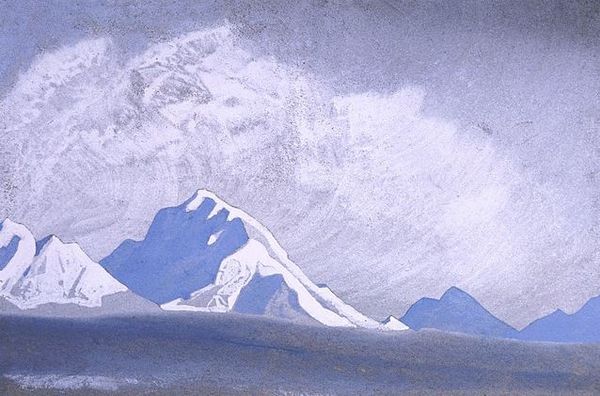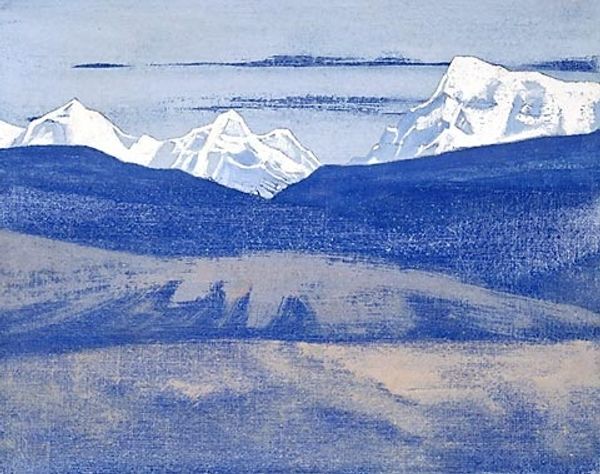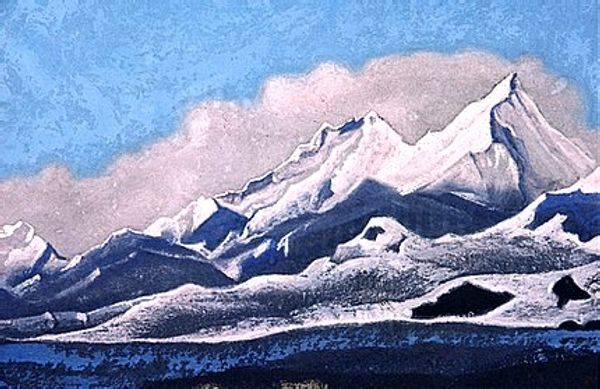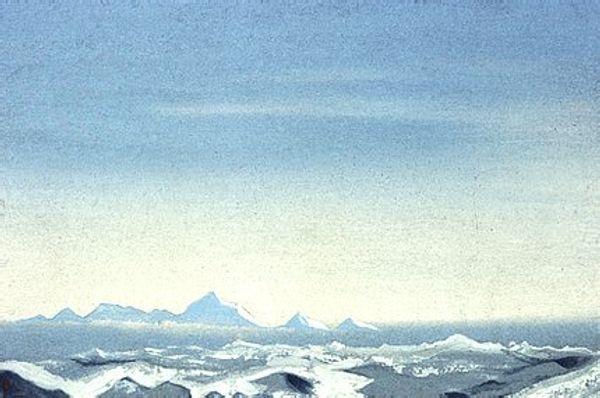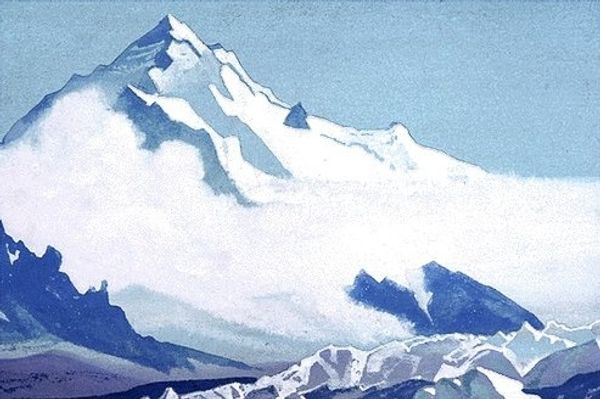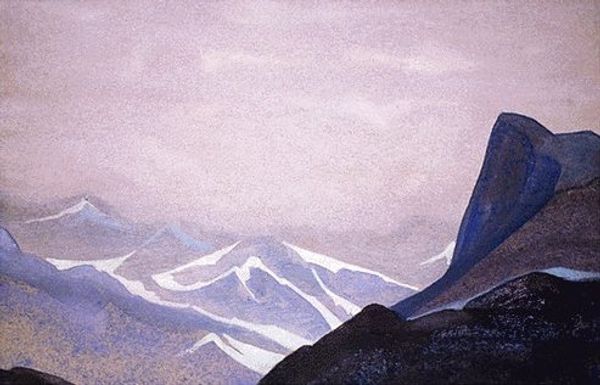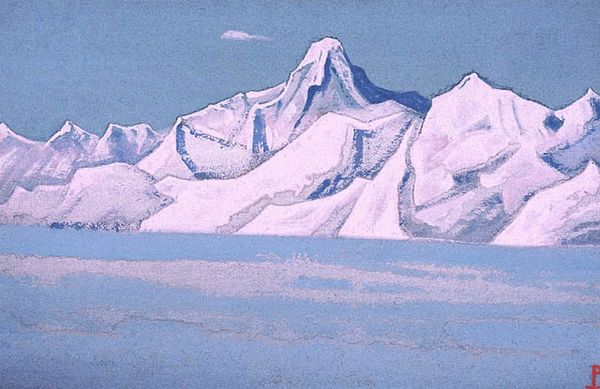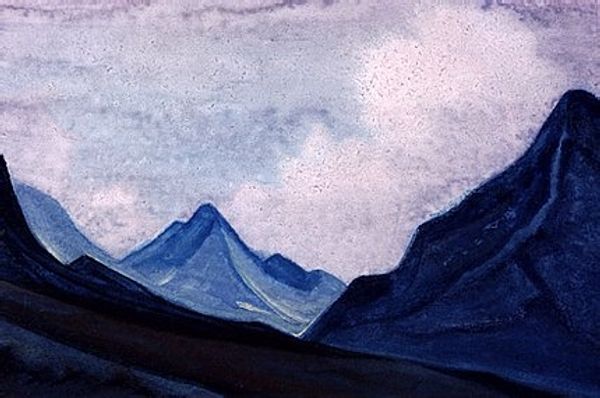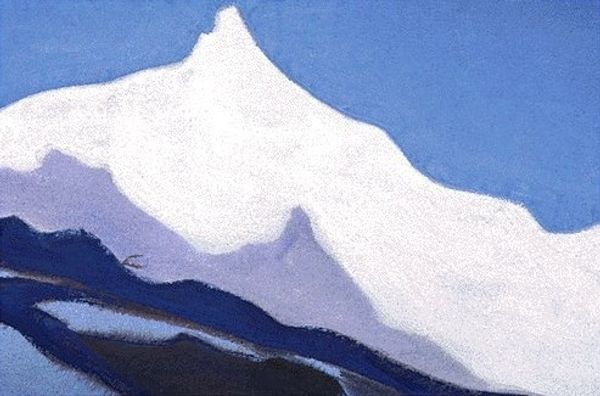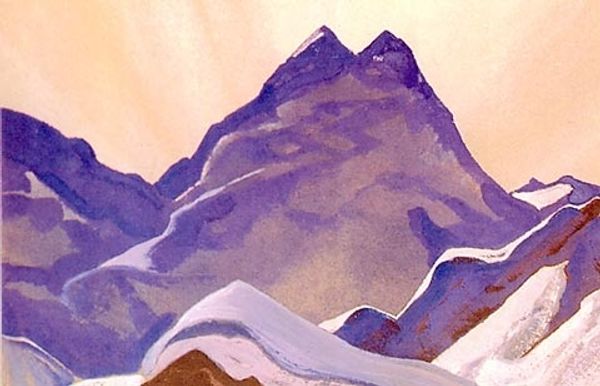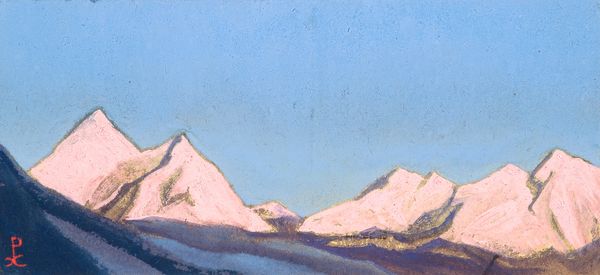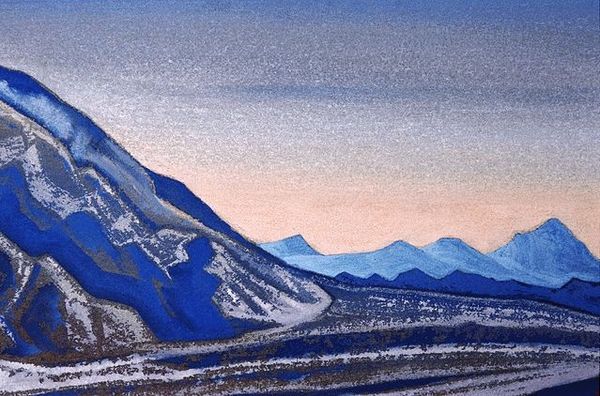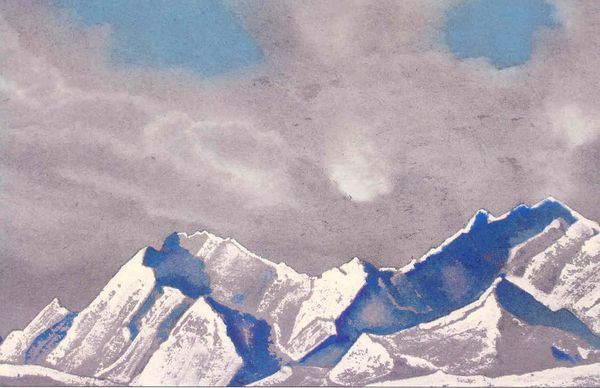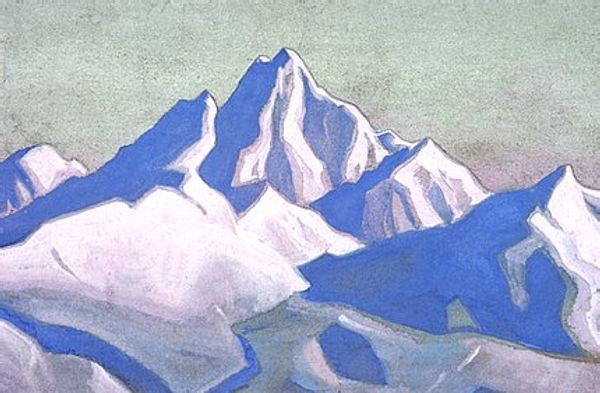
tempera, painting, watercolor
#
sky
#
fantasy art
#
tempera
#
painting
#
landscape
#
watercolor
#
mountain
#
cloud
#
men
#
symbolism
#
watercolour illustration
#
watercolor
Copyright: Public domain
Editor: Here we have Nicholas Roerich's "Himalayas," a watercolor and tempera painting. The mountains are imposing, but the pastel colors give the work a serene, almost dreamlike quality. How do you interpret this work? Curator: Roerich's landscapes, particularly his Himalayan series, are never just about the mountains themselves. We need to see them as deeply intertwined with his spiritual and political beliefs. Consider the historical context: Roerich was a theosophist and deeply influenced by Eastern philosophies. Editor: So, the mountains aren't just mountains? Curator: Exactly. They become symbols. They represent not just physical grandeur but also spiritual aspiration, a reaching towards enlightenment. The Himalayas, in particular, were a site of pilgrimage and spiritual power, viewed as sacred in many Eastern traditions. But Roerich also saw art as a tool for social change and believed in the power of culture to unite people. So the question then becomes, who is this accessibility really for, considering his work was supported by colonial patrons at the time? Editor: That adds a whole new layer. I hadn’t thought about it in terms of accessibility, just aspiration. Curator: It is about aspiration, but also about the power dynamics inherent in representing a "sacred" place while benefiting from systems of power that exploit the very cultures that deem the place sacred. These pastel colours can suggest tranquility, or perhaps obscure certain truths, certain inequalities that affect the very people whose culture inspired Roerich’s work. Editor: It's like he's appropriating their holiness for his own aesthetic and agenda. Curator: Precisely. And how might this appropriation serve particular political purposes during his lifetime, or even our own? Considering these kinds of dynamics really transforms the work, doesn't it? Editor: Absolutely. I see it so differently now. Thanks for that perspective!
Comments
No comments
Be the first to comment and join the conversation on the ultimate creative platform.
